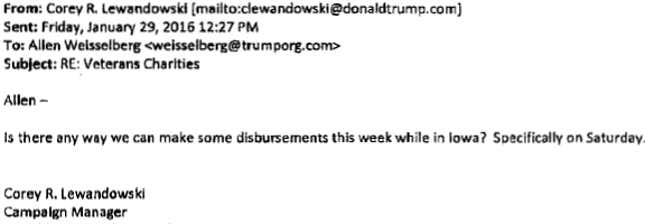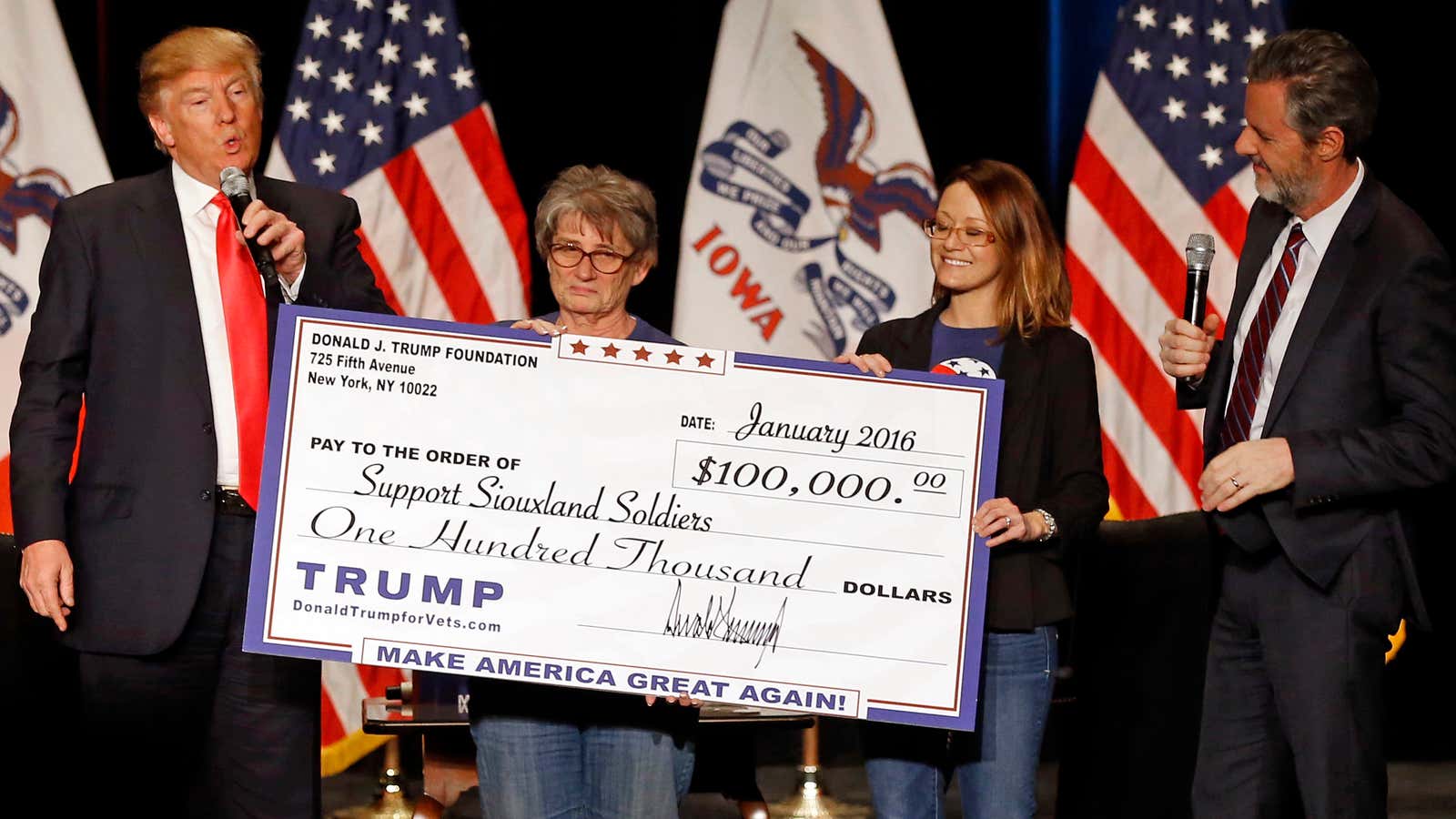New York Attorney General Barbara Underwood has sued the Trump Foundation for self-dealing, calling for a $2.8 million penalty and the dissolution of the so-called charity. Underwood’s office also referred potential criminal prosecutions to the Internal Revenue Service and the Federal Election Commission.
At the heart of the case is a fundraiser that took place in January 2016, while Trump was a candidate in the heated Republican primary. He skipped a primary debate and instead held a televised fundraiser, ostensibly for veterans’ organizations. The legal petition (pdf) filed by Underwood’s office alleges the money instead was used to influence the election.
The evidence includes an e-mail sent by Trump’s campaign manager Corey Lewandowski, which shows campaign officials were controlling the timing of donations ahead of the election. It’s not illegal for an individual to make donations during an election, but it is against the law for political campaigns to coordinate un-reported political expenditures.

The Washington Post’s David Fahrenthold, whose Pulitzer Prize-winning reporting on the foundation’s failure to make good on promised donations led to this investigation, reports that Trump ordered the foundation’s executive director Allen Weisselberg to fly to Iowa with checkbook in hand so that he could make donations to local groups immediately. Trump gave out at least five $100,000 grants to local groups in the lead-up to the caucuses, which he won in a shock victory that helped propel him to the Republican party nomination.
Beyond political purposes, the lawsuit describe’s Trump’s foundation as a kind of tax-free slush fund he used to pay off personal debts, buy himself presents, and market his hotels. The new lawsuit also implicates Trump’s children, Eric, Donald Jr. and Ivanka, who were all ostensibly members of the foundation’s board, but which had not in fact met since 1999.
